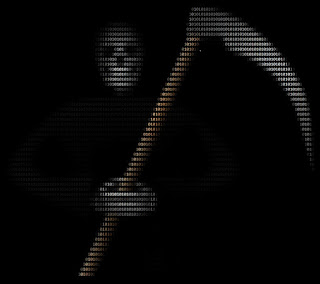Someone is learning to destroy internet
"Key" internet companies are undergoing unprecedented rounds of cyber attacks. So much so that the world expert in cybersecurity, Bruce Schneier, has just warned Internet users: someone is learning to drop the internet.
Internet is about to be hacked. No more no less. This is at least the opinion of Bruce Schneier, one of the essential sizes in terms of cybersecurity. It is on his own blog that this American cryptologist, member of the Tor project, launched the alert on September 13th.
More specifically, it is the key Internet companies, that is, those that provide the "basic infrastructure" necessary for the proper functioning of the web. These include companies such as Verisign , which manages, among other things, .com or .net domain names. In the second quarter of 2016, the latter lamented in a report " more frequent, persistent and complex " attacks .
These digital offensives are based on a principle as old as the Internet: denial of service attacks (or DDoS). This usually involves flooding a query-driven site (as if millions of people were visiting the site at the same time), to the point of saturating its server, making it completely inaccessible. Relatively simple to set up, these attacks are the preferred mode of action of Anonymous, but also cybercriminals who want to drop a site for ransom for example.
The goal is clear: hacker companies that allow the internet to exist
But what worries Bruce Schneier is the particular profile of these denial of service attacks. " These attacks are much broader than those [these companies] are used to seeing ," says the expert on his blog, " they last longer, they're more sophisticated, and they look like the poll ."
For Schneier, the purpose of these attacks is clear: it is to test the defenses of companies that allow the internet to exist, to find the loophole in their lines of code to identify possible entry points at a time. subsequent hacking . The mode of action is precise: "One week, the attack starts at a certain intensity, increases its violence slowly before stopping, and the following week, it resumes where it stopped and continues to increase. And so on, along these lines, as if the attacker was looking for the precise point of weakness . "
Who is behind these attacks?
There remains a question: who is behind this dark design? To bring down the Internet would be to plunge the world into chaos, at a time when the functioning of our entire society is based on digital technology. " It does not look like something that an activist, a criminal or a researcher would do, " says Schneier, for whom these practices are not reminiscent of the secret services of a state. " It's more like the cybercommand of a country trying to calibrate its weapons in case of cyber war, " the expert adds.
What can we do to protect ourselves? " Nothing," says Bruce Schneier. Because " we do not know where these attacks come from ," he says, although his suspicions converge on China. However, governments do not seem to worry about the risks of the internet, probably because of the risk of a diplomatic incident that such revelation would imply. Inertia and discretion that bitterly regrets Bruce Schneier, who wants to be the whistleblower: " It's happening and people have to know it " concludes his article.
ALSO CHECK:
iWatch: its release date, its design and Apple's strategy unveiled?
scientists want to create a hybrid animal half mammoth half elephant
Apple attacks Android via the Samsung Galaxy Nexus
Amputated musician manages to play piano with innovative prosthesis
scientists want to create a hybrid animal half mammoth half elephant
Apple attacks Android via the Samsung Galaxy Nexus
Amputated musician manages to play piano with innovative prosthesis



Comments
Post a Comment